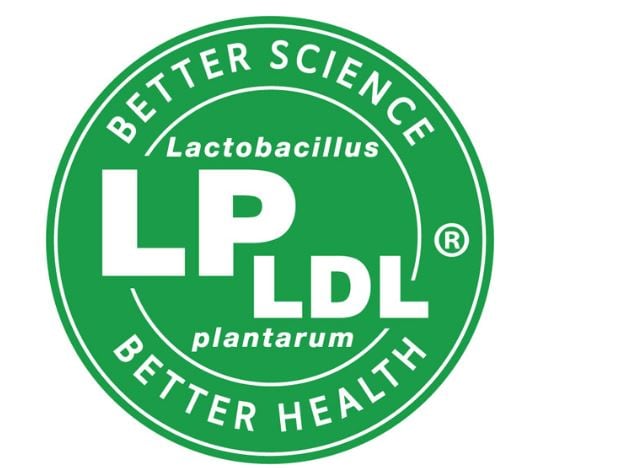In experiments, ALS-prone mice given the gut microbe Akkermansia muciniphila in the form of probiotic-like supplements significantly slowed disease progression and prolonged their survival.
“Given increasing evidence that microbiome affects brain function and disease, we wanted to study its potential role in ALS,” said Professor Eran Segal, study team member and a computational biologist at the Weizmann Institute of Science.
“These findings are only a first step towards achieving a comprehensive understanding of the potential impact of the microbiome on ALS,” adds study lead professor Eran Elinav of the institute’s immunology department.
“But they suggest that in the future, various means of altering the microbiome may be harnessed for developing new therapeutic options for ALS.”
The study, which use mice and humans to assess the microbiome’s involvement in ALS, is the latest to identify the gut as an environment where CNS disease-modifying bioactive metabolites originate.
Previous studies of note that look into the gut-brain axis include research tracking fungal gut populations that migrate to the brain and trigger the kind of inflammation seen in Alzheimer's disease.
Parkinson’s disease (PD) ‘starts in the gut’ said an expert, who spoke of a study that identifies the gut-brain axis and change in microbiome environment as playing key roles in disease progression.
Study details
The scientists first demonstrate that symptoms of an ALS-like disease in transgenic mice worsened after they were given antibiotics to eliminate the majority of their microbiome.
Further research found growing these ALS-prone mice in germ-free conditions incredibly difficult, as these mice struggled to survive in the sterile environment.
Taken together, these results suggest a potential link between microbiome adjustments and faster disease onset in mice genetically susceptible to ALS.
The team then use computational methods to identify 11 microbial strains that alter in ALS-prone mice as the disease progresses or even before the mice develop obvious ALS symptoms.
When these mice are given each microbial strain via probiotic-like supplements following antibiotic treatment, some strains negatively affected the ALS-like disease.
But one strain, Akkermansia muciniphila, significantly slows disease progression in the mice and prolonged their survival.
Its mechanism of action appears to be the secretion of the molecule nicotinamide (NAM). The team found reduced levels in the blood and in the cerebrospinal fluid of ALS-prone mice following antibiotic treatment.
To confirm that NAM could hinder the course of ALS, the scientists infused the ALS-prone mice with NAM.
The clinical condition of these mice improved significantly, with the team suggesting that NAM improved the functioning of their motor neurons.
Human study
Finally, the team looked at microbiome and metabolite profiles of 37 human ALS patients and compared them to family member profiles.
They found the gut microbiomes of ALS patients were distinct in composition and functional features from those of healthy controls.
Specifically, a number of microbial genes involved in NAM synthesis were significantly suppressed in ALS patients.
Moreover, there was a correlation between reduced NAM levels and the degree of muscle weakness in the patients.
“Future studies may decipher complementary ALS-relevant CNS functions of other gut-derived commensals and metabolites identified by us and by others,” the study concludes.
“Importantly, our human data is preliminary and observational, and is not aimed or sufficient to constitute a treatment recommendation of any sort in this devastating disease.”
“These limitations notwithstanding, our study suggests a potential modulatory involvement of the gut microbiome in ALS that may help delineate some aspects of its elusive pathophysiology, while providing an opportunity to identify modifiable environmental and microbial therapeutic targets.”
Expert reaction
Dr Luis Emiliano Pena Altamira, post-doctoral research associate at Kings College London said, “The authors studied patients with ALS and their healthy relatives.
However, these results need further investigation given the complexity of the microorganisms that reside in the human gut and as the authors state, they are not a treatment recommendation.”
Dr Nikhil Sharma, honorary consultant neurologist, UCL Queen Square Institute of Neurology, added, “Like in many disease areas, the translation from a mouse model to humans is challenging.
“Of the several experiments that have positively affected the SOD1 mouse, none have resulted in successful treatment for human motor neurone disease (MND).
“Additionally, in humans the SOD1 gene is only responsible for approximately 3% of cases.
“There is a great deal of work required across several areas to fully understand the relationship between the gut microbiome and the brain. Examining the connection between the gut microbiome and brain in ‘real world’ people living with MND is now feasible.”
Dr Brian Dickie, director of research development, Motor Neurone Disease Association, said, “The SOD1 mouse is also known to undergo major neuroinflammatory changes as the disease progresses.
“The evidence for other neurological diseases suggests that the microbiome applies its influence on the brain by controlling inflammation, it’s surprising that the researchers have carried out so little analysis of inflammation in the mouse brain and spinal cord.
“Another key experiment to perform would be to see whether a ‘transplant’ of the human species of the bacteria into the mice alters their disease progression. This would provide an important link between mouse and human studies.
“The authors stress that their human data is preliminary. In the context of disease symptoms and progression, humans are a lot ‘messier’ than mice, so I completely agree that small ‘snapshot-based’ studies such as this must be treated with caution.”
Source: Nature
Published online: DOI: 10.1038/s41586-019-1443-5
“Potential roles of gut microbiome and metabolites in modulating ALS in mice.”
Authors: Eran Blacher et al




